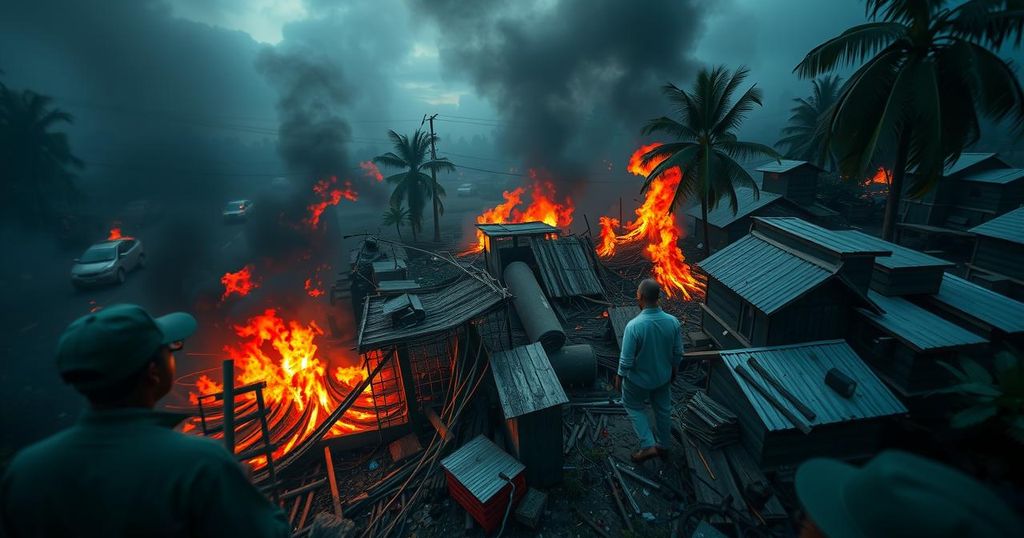The Democratic Republic of Congo is grappling with severe political instability and socio-economic challenges, with President Tshisekedi’s proposed constitutional reforms raising concerns about extending term limits. This mirrors past attempts by former President Kabila and highlights the potential for civil unrest amidst a backdrop of global interest in the nation’s resources.
The Democratic Republic of Congo (DRC) faces significant challenges, with its citizens enduring the consequences of a resource-rich nation ranking among the poorest globally. The eastern regions are marked by pervasive insecurity due to numerous armed groups, leading to mass displacements and ongoing threats of war. Over 23 million Congolese have been affected by food insecurity, while a severe Mpox outbreak exacerbates their plight. President Felix Tshisekedi, who assumed office under contentious circumstances in 2018, has struggled to address critical issues affecting his citizens. Following his re-election amidst accusations of electoral malpractice in 2023, he has proposed constitutional reforms, labeling the current 2005 constitution as outdated. Tshisekedi has suggested the formation of a national commission to draft a new constitution, purportedly to reflect the wishes of the Congolese people. However, many citizens perceive this push for constitutional change as a political maneuver aimed at altering presidential term limits to extend his tenure. This strategy bears resemblance to former President Joseph Kabila’s attempts to maintain power through constitutional amendments, which ultimately led to widespread dissatisfaction and unrest. Tshisekedi’s apparent disregard for historical outcomes linked to term limitations raises concerns about a potential constitutional coup. The DRC requires political stability and reform that addresses the needs of its populace, rather than self-serving distractions from leadership. Although global powers display an eagerness to engage with Congo’s mineral wealth, there is little incentive for Tshisekedi to abandon his controversial pursuits. This situation may perpetuate a cycle of external exploitation, exacerbating internal discontent among the Congolese people, who deserve equitable governance and sustainable support.
The Democratic Republic of Congo has long struggled with poverty despite its wealth in natural resources. Approximately 70% of the population lives in extreme poverty, while armed conflict and political instability perpetuate a humanitarian crisis. The 2005 constitution provided a framework for governance, but recent calls for reform have stirred fears of political maneuvering, particularly regarding term limits for the presidency. Historical patterns within the region indicate that efforts to extend presidential power often lead to significant unrest and discontent.
In summary, the proposition for constitutional reforms by President Tshisekedi raises severe concerns about his intentions and the potential for a constitutional coup in the DRC. The historical context of previous political unrest, particularly regarding term limits, illustrates the fragile nature of governance in the country. It is imperative that local and international actors advocate for solutions that prioritize the well-being of the Congolese people, rather than succumbing to the temptations of political expediency.
Original Source: www.cfr.org






